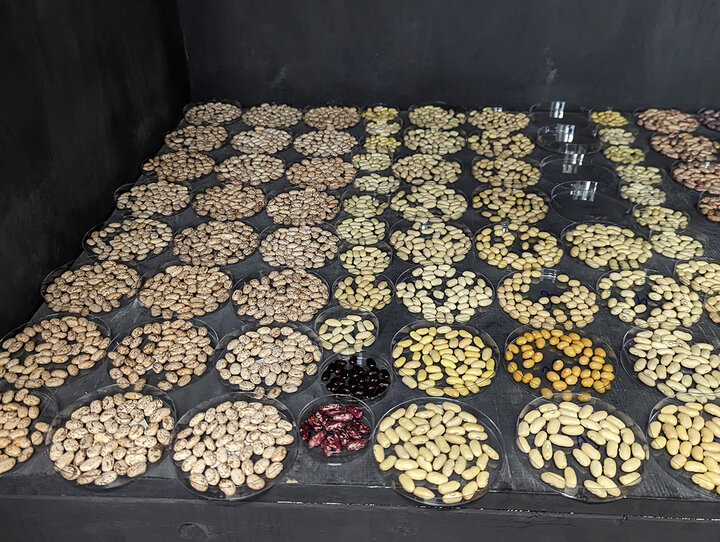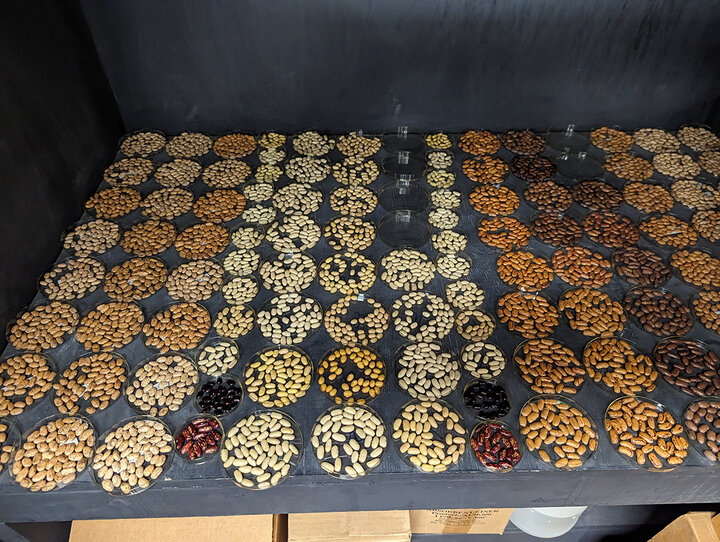Results of the 2022 variety trials for dry edible beans conducted by the University of Nebraska Panhandle Research and Extension Center are now available on CropWatch.
Results on the Variety Testing page include the most recent years of dry bean variety trials, as well as industrial hemp, oats, field peas, proso millet and sunflower variety trials. Older variety trial results can be found by clicking the link under “Archives”.
Nebraska’s dry edible bean variety trials have been operated for 41 years as a service to the dry bean industry to evaluate which dry bean varieties and experimental lines from the public and private industry are best suited for western Nebraska. The 2022 trials were planted at two locations, the Scottsbluff Ag Lab at the Panhandle Research and Extension Center (June 8), and the Mitchell Ag Lab, five miles to the north (June 3). UNL staff, under the direction of Dry Bean Breeding Specialist Carlos Urrea, did the planting, fieldwork, harvest and analysis of results.


The dry bean report includes a description and summary of the trials, and tables that list yield, 100 seed-weight and test weight adjusted at 14% moisture, and other phenological data for each variety within the market classes. In addition, the report includes detailed information about plot management, such as planting dates, seeding rates, herbicide treatments, row width, irrigation and harvest dates. Pinto beans were exposed to UV light for 48 hours to verify the slow-darkening trait (yes = slow-darkening; no = regular pintos).
A total of 12 trials replicated trials were conducted at the two locations (Scottsbluff and Mitchell Ag Labs): two plots each of Great Northern (22 entries), pinto (48 entries), light red kidney (12 entries), navy (14), yellow (7), and black beans (13),
Results were compiled by Urrea. He also acknowledged Panhandle Center Farm Manager Gene Kizzire and his team and the summer crew for help with agronomic management and thanked the Nebraska Dry Bean Commission for its financial support.
In addition to CropWatch, the report will be published in the Bean Bag newsletter published by the Nebraska Dry Bean Growers Association.
